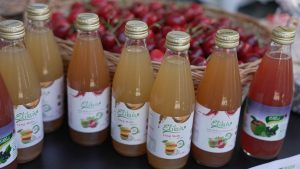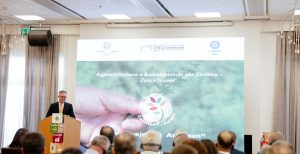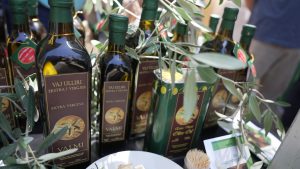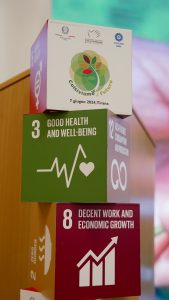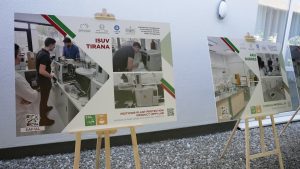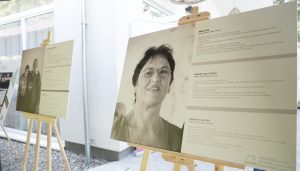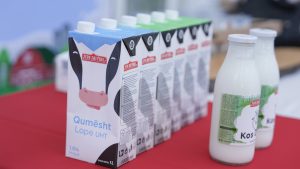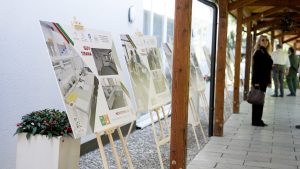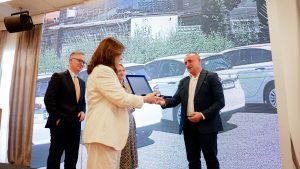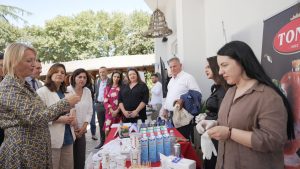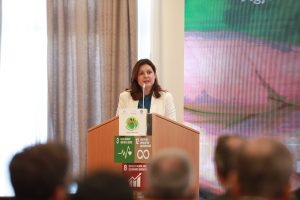“Cultivating the Future”, organized on June 7th by the Italian Embassy in Tirana, the Italian Agency for Development Cooperation and CIHEAM Bari in the framework of the “Italian Week”, has been a platform to share the future of cooperation between Italy and Albania in the agriculture and rural development sector.
The event was a strong reminder of the responsibility we bear towards younger generations and the crucial role of agriculture in shaping a sustainable and inclusive future, which places people’s well-being, agroecology and innovation at the center. We deem these as key factors to leverage the achievement of the Sustainable Development Goals, which have become the compass of Italian commitment in Albania and the Western Balkans.
“Agriculture and rural development are among the sectors on which cooperation between the two countries is most focused. Precisely to strengthen this exchange of knowledge and consolidate good practices for mutual growth, in March last year the Minister of Agriculture, Food Sovereignty and Forestry Francesco Lollobrigida, during his mission in the country signed with his Albanian counterpart a Memorandum of Understanding on cooperation in the agri-food, fishing and agri-food processing sectors, aimed in particular at promoting agricultural and agri-food cooperation between the two countries” – underlined Ambassador Bucci in his greeting.
Minister Anila Denaj emphasized that “food safety is not just a service, but a mission that directly affects the guarantee of safe products for consumers. Cooperation between Italy and Albania, in the sector of agriculture, rural development and food security, has as objectives well-being, agroecology and innovation in order to favor sustainable food systems in Albania, also as a model for the Western Balkans”.
During her speech, the Director of the Italian Agency for Development Cooperation in Tirana, Stefania Vizzaccaro underlined that “With a constant presence on the Albanian territory thanks to an integrated approach, which synergistically brings together the main sectors in which we are active making use of the best excellences of the Italian system, we promote inclusive governance, a tool at the basis of economic development that enhances natural and cultural heritage to promote economic growth with a view to intergenerational sustainability. We place agriculture and rural development at the center, closely interconnected with the health and well-being of individuals and at the basis of an inclusive development that enhances and nourishes the richness of its territory. The agriculture and rural development sector is one of our pillars of intervention with the most significant financing portfolio. Currently, in Albania, we are implementing 7 initiatives for a total value of over 13 million euros in grants, 5 soft loans for a value of approximately 40 million euros and further initiatives in the finalization phase. Overall, the total investment exceeds 50 million euros, positioning AICS as one of the largest bilateral donors in this sector in Albania”.
At the end of the 90s, CIHEAM Bari implemented the first cooperation project in Albania in the plant nursery sector. This initiative laid the foundations for an activity that has become a pillar of our Organization, thanks to the support of Italian cooperation. The SAFIAL project, in its conclusion phase, is an example of successful cooperation between CIHEAM Bari, AICS Tirana, the Albanian Ministry of Agriculture and the Italian System, with the technical assistance of the Experimental Zooprophylactic Institute of Teramo. The results achieved were very positive. This represents a further step towards strengthening our partnership with Albanian institutions, in particular on the issues of the blue economy and the green transition” – stated the Director Maurizio Raeli.
The Director of the Italian Trade Agency, Francesca Mondello took the opportunity to inform the guests of the organization of the “Lab Innova Albania technical training event”, an event aimed at operators in the agri-food sector, on the 18th and 19th of June together with AICS Tirana for a renewed confirmation of Sistema Italia’s contribution to the development of sustainable agri-food systems in Albania.
“Cultivating the future” also marked an important moment for the project “SAFIAL – Institutional strengthening of the Albanian Ministry of Agriculture for the management of food safety”, financed by the Italian Agency for Development Cooperation and implemented by the CIHEAM Bari, which comes to an end after three years of excellent work with representatives of the food safety agencies involved: The National Food Authority (AKU – Autoriteti Kombëtar i Ushqimit ) Institute of Food Safety and Veterinary Medicine (ISUV: Instituti i Sigurisë Ushqimore dhe Veterinarisë ) The National Veterinary and Phytosanitary Authority (AKVMB – Autoriteti i Veterinarisë dhe Mbrojtjes së Bimëve)
At the end of the interventions, four new cars purchased through the SAFIAL project, financed by AICS, were delivered. These vehicles will facilitate the work of national authorities’ veterinarians, allowing them to safely reach distant farmers for health checks and improve animal traceability.
“Today is not only an opportunity to talk about past achievements, but also to look ahead, to envisage the future of the agricultural sector and rural development in Albania” Dr. Franco Turri, Team Leader of the Agriculture and Rural development sector at AICS Tirana, shared the Agency’s vision for the sustainable development of the agricultural sector in Albania, result of a participatory process of consultations with local partners and authorities.
Finally, the guests had the opportunity to experience first-hand the impacts of past initiatives financed by AICS Tirana through an exhibition with CSO, beneficiaries where audiovisual installations and food tastings were displayed. This has been a unique occasion to discover and to listen to their Italian-Albanian success stories, thanks to the voices and testimonies of farmers, entrepreneurs and associations who were able to benefit from the projects financed by the Italian Government.
